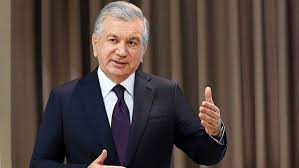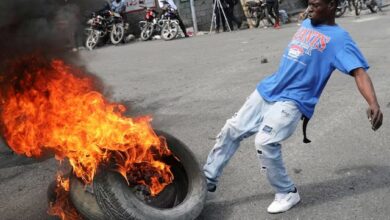President Shavkat Mirziyoyev is expected to win the presidential election in Uzbekistan with a landslide victory
Following a constitutional referendum that increased the incumbent’s tenure from five to seven years, Uzbekistan will conduct a quick election for president on Sunday.
The maximum number of terms permitted by the constitution, two five-year terms, were won by President Shavkat Mirziyoyev in 2021. However, he was able to start the counting of terms again and seek two more with the modifications adopted in the April referendum, increasing the likelihood that he would hold office until 2037.

A landslide victory for the 65-year-old Mirziyoyev against his three insignificant opponents is expected.
The Organization for Security and Cooperation in Europe’s elections observation branch said in a pre-voting assessment that “the political landscape has remained unchanged and none of the parliamentary political parties stand in open opposition to the president’s policies and agenda.”
After taking over as president in 2016 after the death of long-time dictator Islam Karimov, Mirziyoyev has enacted a number of political and economic changes that have softened some of the harsh measures taken by Karimov, who turned Uzbekistan into one of the most oppressive nations in the region.
In contrast to the complete repression of criticism during the Karimov period, freedom of expression has increased under Mirziyoyev, and some independent news outlets and bloggers have emerged. Additionally, he loosened the strict restrictions on Islam that Karimov placed on the country, which is mostly Muslim, in order to quell oppositional viewpoints.
Uzbekistan, however, has maintained a strong authoritarian system with no substantial opposition. All officially recognized political parties support Mirziyoyev.
More than 90% of voters in the referendum held in April chose to support the measures that extended the presidency.
In order to implement his reforms, Mirziyoyev eliminated state control over cotton production and sales. This put an end to decades of forced labor in the nation’s cotton industry, a significant source of export income. More than 2 million Uzbeks were made to labor in the yearly cotton harvest under Karimov.
Additionally, Mirziyoyev removed restrictions on hard currency, promoting foreign investment, and he made efforts to mend strained ties with the West under Karimov. As part of China’s Belt and Road Initiative, which has made it Uzbekistan’s biggest commercial partner, he has maintained tight connections with Russia and negotiated a series of significant deals with China.
After Moscow moved soldiers into Ukraine, Mirziyoyev, like the presidents of other former Soviet Central Asian countries with strong economic links to Moscow, engaged in a careful balancing act, avoiding endorsing the Russian operation but not denouncing it either.







